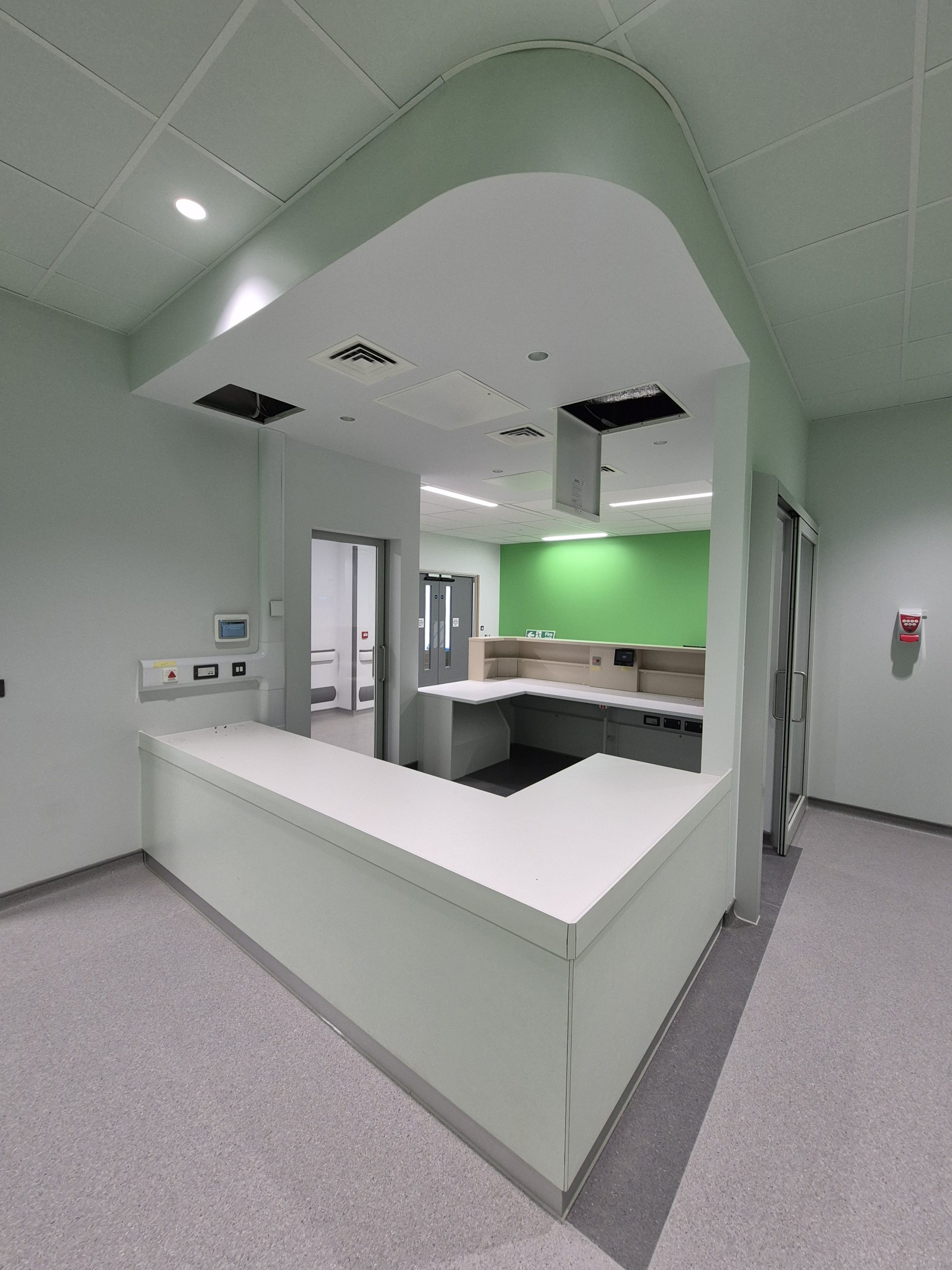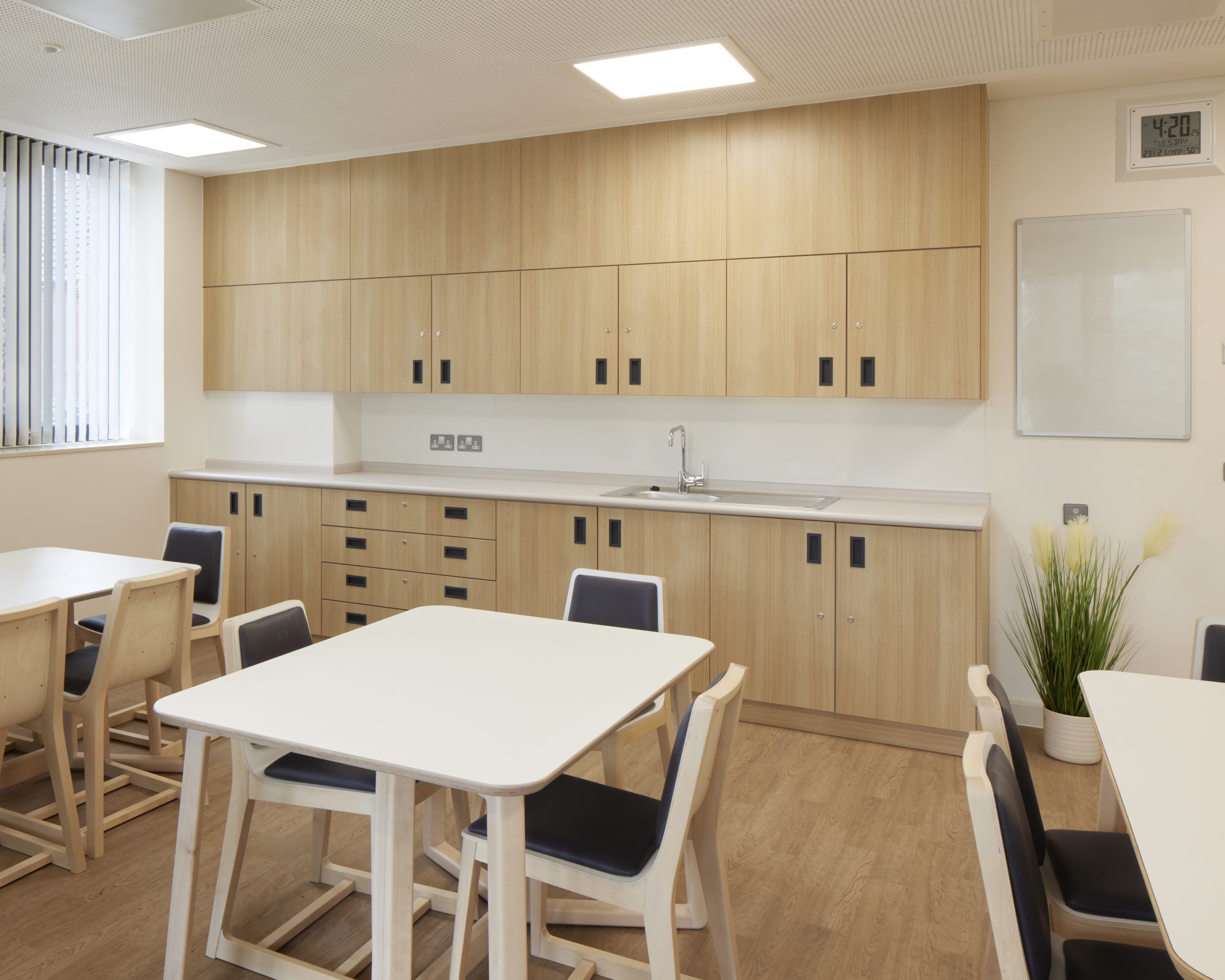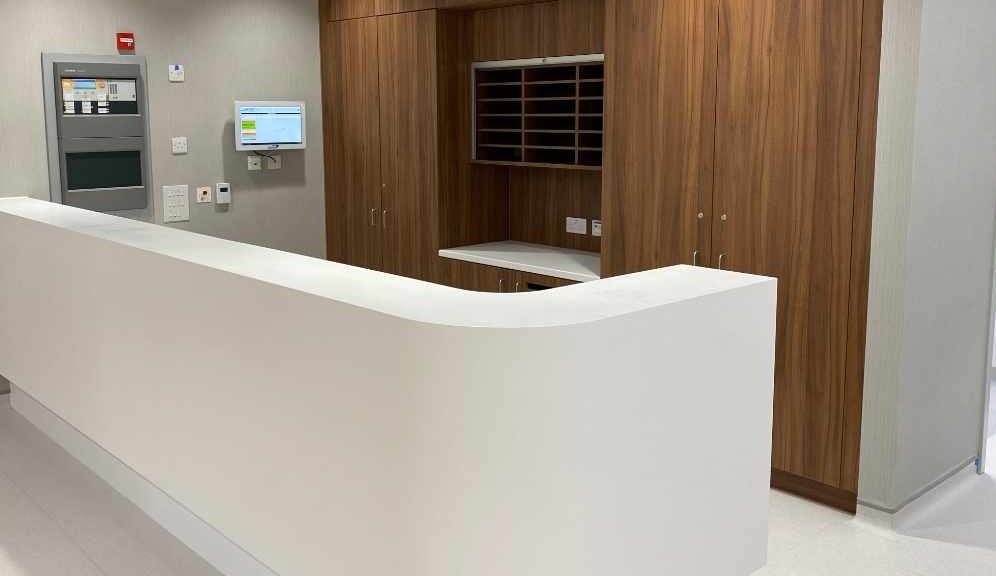Inside the main entrance of a busy NHS hospital is the reception desk. It stands…

How inner city health could help our cities
The urban planning in our cities has been changing for some time. Brick and mortar retail is declining, and there is a growing trend toward a concept called the 5-minute city. The philosophy of which is that all services should be within a 5-minute walking distance from any public transport stop. This could include inner city health facilities.
This could also be applied to suburbs or “villages”, where each area should have key services on its doorstep. Why have healthcare facilities far out, away from the people who need to visit them?
Interestingly, this is a legacy from the Victorian era. Health care at that time was based on the model of a country house. A sick person would be sent away from the city to the fresh air of the countryside to recover. Another way to look at this was that they believed sick people should be kept away from the healthy so as not to spread disease.
Healthcare access reimagined
Thankfully, we know much more about the illnesses that fall on our communities today. Outside of the recent pandemic, it’s rare to encounter situations where sick people should be required to isolate from society. What’s more, with changes to how we live, work and access services, facilities far away only serve to inconvenience those who need it and lack the luxury of time and transport.
Could health facilities come into our cities?

In the UK recently, there were changes to planning legislation that opened up an opportunity for healthcare and wellbeing facilities to enter our inner cities and accommodate the millions of people who live there.
With the pandemic triggering vacant high street shops, unprecedented pressure on healthcare facilities and light shed on the inequality of access to these facilities, why not reimagine how they could be integrated into our inner urban environment?
Micro-facilities are one of many trends that have come out in the last few years. This has recently been called “health on the high street”. And the space is there in our cities, at lower prices than before, to build service centres in the place where people need them.
What could inner city health do for UK citizens?

There are many reasons why this would be a good thing for our society.
1. It would help to reduce health inequalities
There is a growing body of evidence that suggests where you live can have a significant impact on your health and wellbeing. This is often referred to as the ‘social gradient in health’. In the UK, it’s been found that those in manual occupations and with lower incomes have a life expectancy up to 10 years shorter than those in professional occupations. These are the people with less flexibility to make it to out-of-the-way healthcare facilities.
2. It would be more convenient for people
Many people who live in a city don’t have a car. This can make getting to appointments difficult, especially if they don’t have family or friends who can take them. Having healthcare services closer to where people live would make it much easier for them to get the care they need.
3. It would save the NHS money

The NHS is a huge organisation that costs a great deal of money to run. One way to help reduce the cost is to make it easier for people to stay healthy. If people can see a GP or nurse more easily, they’re less likely to need hospital treatment.
4. It would help the environment
If more people walked or took public transport to their appointments, it would help reduce traffic and pollution in our cities.
5. It would make our cities more liveable
With people moving out of the cities, opting to work from home in other locations, something has to be done to keep the cities an attractive place to live. Good access to healthcare is one way to transform inner city living into inner city communities where people get more value from their environment.
Inner city health – find out more
David Bailey Furniture Systems manufactures hospital-grade furniture and fitted storage solutions for the healthcare sector and have provided furniture for NHS and private hospitals, health centres, GP surgeries and other healthcare facilities across the country. Our expert team can advise on bespoke solutions for your micro-facility that are both stylish and functional.
View our product brochure here.
Read case studies about healthcare furniture installations we have carried out.
If you would like to learn more about our healthcare furniture solutions and how we support contractors and architects in the healthcare sector, please get in touch with one of our experts today.








